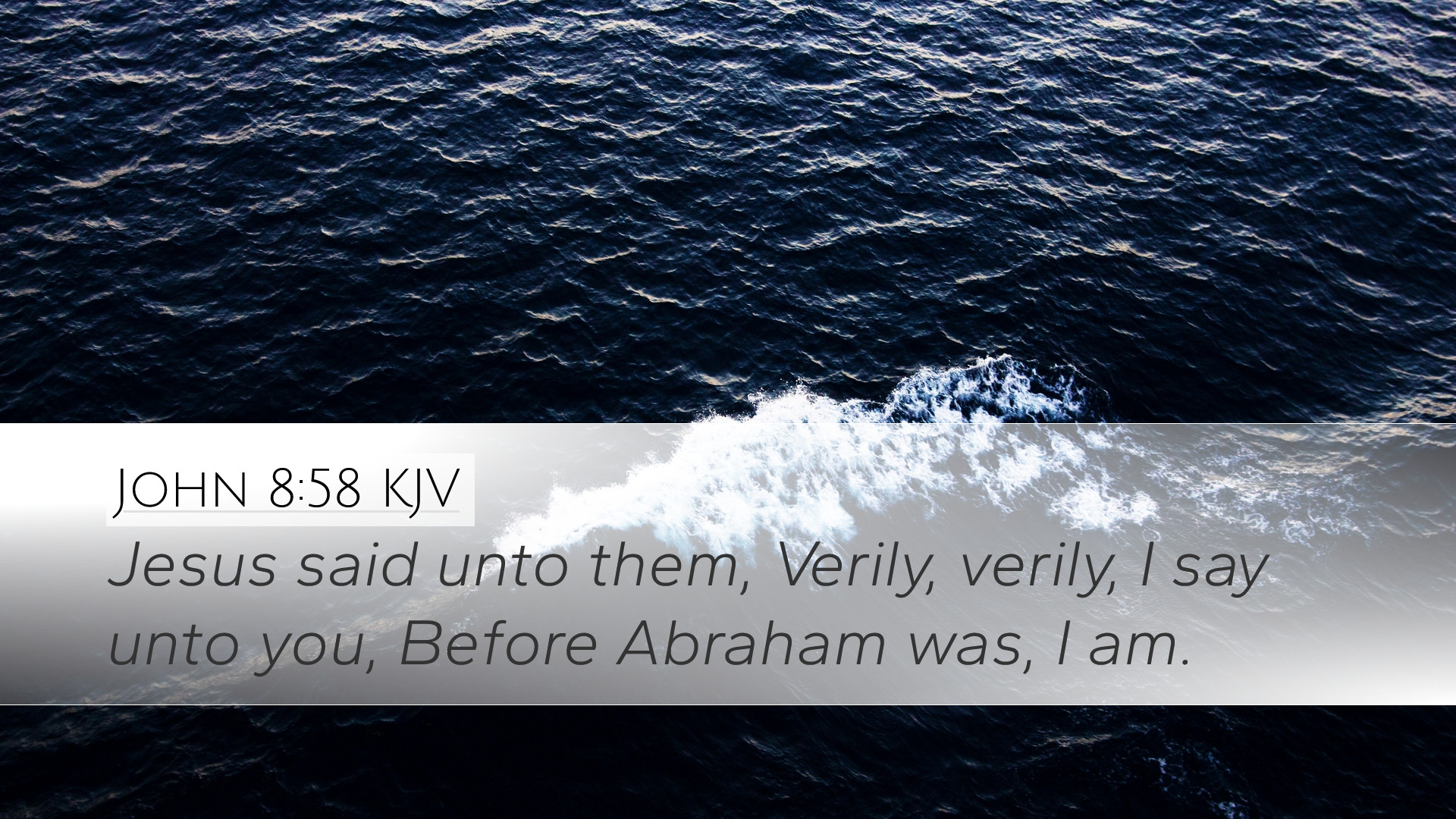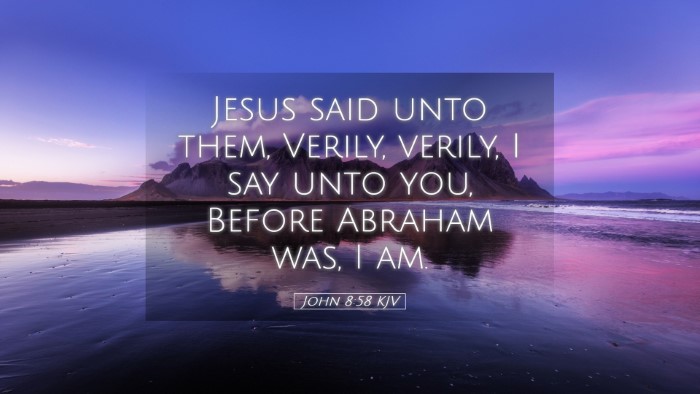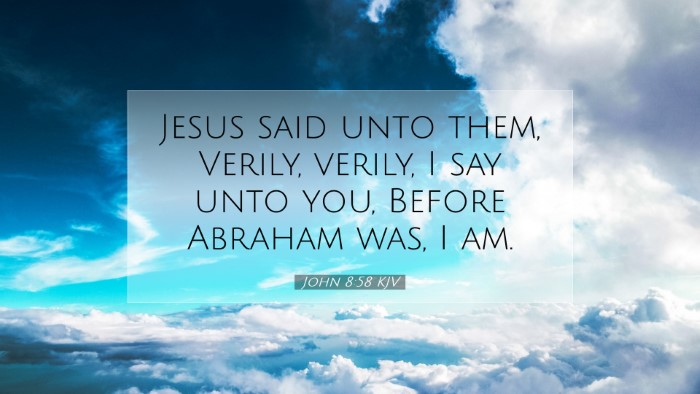Commentary on John 8:58
Verse Reference: John 8:58 - "Jesus said to them, 'Most assuredly, I say to you, before Abraham was, I AM.'
Introduction
The profound declaration made by Jesus in John 8:58 has generated extensive theological debate and reflection throughout Christian history. This verse encapsulates critical Christological insights and offers a vivid revelation of Jesus' divine nature. By examining the verse through the lens of public domain commentaries, we gain valuable insights into its implications and significance.
Historical Context
In this setting, Jesus is engaged in a heated discourse with the Jewish leaders, challenging their understanding of Abraham and the Scriptures. The tension builds as they attempt to assert their lineage and superiority based on their heritage, yet Jesus offers a profound truth that transcends time.
Matthew Henry's Insights
Matthew Henry draws attention to the authority with which Jesus speaks. His assertion, "I AM," is a direct affirmation of His eternal existence and divinity. Henry emphasizes:
- The Pre-existence of Christ: Jesus affirms that He existed before Abraham, thus denying any limitation of His existence to His earthly life.
- The Claim of Divinity: The phrase “I AM” echoes the name God revealed to Moses at the burning bush (Exodus 3:14), signifying Jesus’ identification with the divine.
- Contrast with Human Understanding: Jesus contrasts His divine pre-existence with the finite understanding of the religious authorities, thereby challenging their perception of God’s timeline.
Albert Barnes' Perspective
Albert Barnes provides a detailed analysis of the grammatical and theological implications of Jesus’ words. He emphasizes:
- Definitive Declaration: The phrase "I Am" is not merely a claim of existence but speaks to Jesus’ essence as God; it indicates an uncreated and self-sufficient reality.
- Rejection of Temporal Limitations: Barnes notes that while Abraham had a beginning, Jesus exists eternally, underlining the distinction between the Creator and the creation.
- Fulfillment of Prophecy: He alludes to the prophetic roots of Jesus’ self-identification, thus placing this moment within the broader narrative of salvation history.
Adam Clarke's Commentary
Adam Clarke offers a keen exploration of the theological and lexical dimensions present in the verse. His points include:
- In-depth Word Study: Clarke analyzes the Greek term “Ἐγώ εἰμί” (Ego eimi), highlighting its existential weight and theological significance in conveying the notion of self-existence.
- Contrast between Jesus and Abraham: Clarke stresses that Jesus' statement, "before Abraham was," signifies a pre-temporal existence that starkly contrasts with Abraham’s moment of creation.
- The Reaction of the Jewish Leaders: He notes that the Jewish leaders’ attempt to stone Jesus reflects their understanding and rejection of His claim to divinity—a clear sign of His authoritative teaching.
Theological Implications
The implications of John 8:58 extend far beyond its immediate context, posing essential questions about Christ's identity and His relationship with humanity and God. Key theological points include:
- The Nature of God: This verse invites deep reflection on the nature of God, revealing that Jesus embodies the eternal presence of God, affirming the doctrine of the Trinity.
- Christ's Authority: By asserting His eternal existence, Jesus establishes His authority over the law and the prophetic tradition, creating a paradigm shift in understanding the fulfillment of God's promise through Him.
- Implications for Believers: For Christian believers, this verse serves as a foundational truth about the reliability of Jesus’ teachings and His role as the mediator between God and humanity.
Conclusion
John 8:58 is a profound statement that encapsulates the theological depth of Jesus’ self-revelation. By examining the insights from public domain commentaries of Matthew Henry, Albert Barnes, and Adam Clarke, we gain a clearer understanding of the profound truth that Jesus is the eternal "I AM." This declaration not only affirms His divinity but also challenges us to understand the significant implications for our faith and relationship with God. As pastors, students, theologians, and Bible scholars continue to explore this verse, may they grasp the depths of Jesus' identity as the timeless Savior who transcends human understanding.


